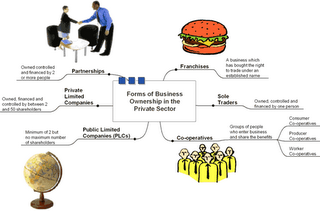 I'm reading up in a book from "C.K. Prahalad", The Fortune at the Bottom of the Pyramid. This book is mostly looking at a portion of society that is not totally impoverished (extreme poverty), but certain means at its disposal to make purchasing choices and maybe even has the capacity to save (capacity being not the same as possibility). Well, if it was meant to address the totally impoverished, see previous post that explains how I disagree :).
I'm reading up in a book from "C.K. Prahalad", The Fortune at the Bottom of the Pyramid. This book is mostly looking at a portion of society that is not totally impoverished (extreme poverty), but certain means at its disposal to make purchasing choices and maybe even has the capacity to save (capacity being not the same as possibility). Well, if it was meant to address the totally impoverished, see previous post that explains how I disagree :).The questions that are being raised now for Brazil are:
- Does India / China relatively have many more startups than Brazil?
- Is the global and international activity (objective) of those developing countries more aggressive than the Brazilian activity?
- Are the legal systems for China and India better developed (maybe in definition of law, otherwise in its enforcement) than Brazil?
- What are other important factors to take into consideration when considering stagnant economic activity?
This concept is also known as e-governance. The introduction of this will surely produce an initial surge in corruption and malfunction, but later on it should produce a better balance of power and consistent treatment and application of law, if we assume the knowledge of the general citizen sufficient to be part of this system (that is, part of its reasoning must be based on individual interest, but a grand part in the interest of a group, which is society).
India is doing this in one state already, the state of Andhra Pradesh. Here the political leadership wanted to turn around the excessive burden of corruption especially in the registration of land. They invented a computerized system that makes it much harder for corruption to manifest itself. The result was that the public no longer needs to pay the corruption fees and therefore also change their perception about the level of corruption in government.
Since then, the state has sought to automate and digitize many more public services. In this way, the citizen also becomes an agent in the system and it's more of a "self-help" way to interact with government. Government, after all, is a representative of the people and serves to administer the access to public services by those people. It has power to make laws, execute laws and judge people that break the social contract with the government.
One side of politics argues that a country that lacks an effective justice system has little chance to increment economic growth because there is lack of confidence in people that property rights are maintained. This reasoning goes all the way back to Hernando de Soto. (the other political side mainly talks about social injustice and social inequality, causing problems to generate more wealth in the long run).
I tend to believe that when contracts cannot reasonably expected to be enforced, it becomes difficult for new entrepreneurs to engage in business because the non-compliance is seen as a threat. The current legal system in Brazil seems to reflect this. Too many people and legal professionals I met are faced with 4-5 years to solve a particular case. Only when this can be expedited or alternative measures for contract enforcement are found will we probably see some higher growth rates. (China, for example, has enormous corruption and a poor legal system, but the contracts are enforced between the business people themselves, more by honour than by a legal framework that backs them up).
Final word about e-Governance... not only is corruption reduced but in the example of the Indian state... The workers there were required to stand in line 4.5 hours per month to pay their electricity bill. Prahalad estimated this to be U.S. $45 million in one city per year. So, by improving the access to information and access to public services by automating and digitizing those, we can reduce the level of spending (less gov't employees and wages) and the workers do not have to spend 4.5 hours per month standing inline and continue to work.
That sounds like a win-win situation...




No comments:
Post a Comment